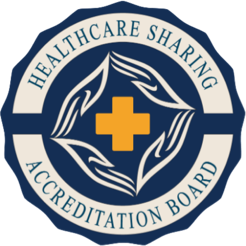If you're having problems sleeping, it might be time to talk to your doctor about sleep apnea. Although it's often overlooked or ignored, sleep apnea can have serious consequences when left untreated. Sleep apnea causes your breathing to stop and start throughout the night. This disrupts your sleep and lowers the quality of rest you get overall.
However, there are plenty of steps to reduce your risk of getting sleep apnea, allowing you to wake up refreshed every morning and avoid sleepiness while driving or working if necessary! Here are three easy tips to help prevent sleep apnea!

Save up to 50% or more on your family's health care! Input your ZIP Code below for a free OneShare Health quote!

How to Avoid Sleep Apnea
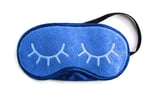 What Is Sleep Apnea?
What Is Sleep Apnea?
Sleep apnea is a common condition that disrupts normal breathing during sleep. It's also known as obstructive sleep apnea, central sleep apnea, or OSA. The most common form of sleep apnea occurs when tissues in your throat collapse during sleep and block your airway. When you have OSA, airflow through your nose and mouth is interrupted repeatedly throughout the night, making it difficult to get quality rest.
What Are the Symptoms of Sleep Apnea?
It's normal for your breathing patterns to change slightly while you sleep. When you breathe in, your muscles relax and expand, causing your rib cage to drop down. Your diaphragm then moves downward. This creates a partial vacuum that makes it easier for air to enter your lungs from outside of your body. As you exhale, these muscles tense up and push against each other, raising your rib cage back up into place again.
For some people with sleep apnea, these muscle movements don't happen. Instead, their soft tissues collapse into their airways. The narrowing or blockage prevents them from getting enough oxygen during sleep and forces them to wake up briefly to keep breathing correctly. The result is that they have periods when they stop breathing entirely—the official medical term is hypopnea—or when they take abnormally shallow breaths (called hypopneas). In both cases, people are generally unaware that anything is wrong until their partner wakes them up. In severe cases, they may not wake at all until morning.
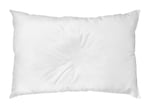 How Can I Avoid Sleep Apnea?
How Can I Avoid Sleep Apnea?
Although there is no cure for sleep apnea, you can take steps to prevent it. The first step is your bedding—sleeping on the best pillow for sleeping can help. In addition, sticking to a strict sleep routine will go a long way in helping you get better and more restful sleep every night.
Ensure Your Mattress Meets Your Comfort Needs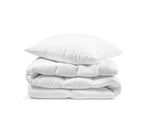
One of the biggest sleep apnea risk factors is poor quality sleep. The best pillow for sleeping can help you get a good night's rest and prevent sleep apnea symptoms by adjusting your posture. Plus, if you have sleep apnea and your mattress doesn't provide sufficient support, it will only exacerbate symptoms like fatigue, insomnia, memory problems, and restless leg syndrome. Memory foam pillows are for those with mild to moderate sleep apnea because they mold to your neck and head contours without pushing against them too much.
 Drinking Lots of Water Helps One Fall Asleep Easily
Drinking Lots of Water Helps One Fall Asleep Easily
Your body needs water to function, so make sure to drink enough of it. Regardless of when you drink your water, make sure you are getting at least eight cups of it a day. It could help with falling asleep easier and staying asleep throughout the night.
Set Up a Bedtime Routine and Stick to It Every Night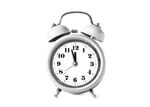
Establishing a bedtime routine (and sticking to it) can help set your body's internal clock. It can also improve your quality of sleep and reduce sleep apnea symptoms. Your routine doesn't have to be elaborate—even something as simple as brushing your teeth and washing your face can help. And if you want a more hands-on method of establishing a routine, incorporating relaxation techniques such as meditation or deep breathing into your evening can promote better sleep quality.
Make sure you adhere to healthy habits that promote sleep every night. For example, avoid eating heavy meals within three hours of bedtime; limit alcohol consumption; exercise regularly but avoid working out for two hours before bed; and create a cool, dark bedroom environment conducive to rest.
Do you suffer from sleep apnea? Share your stories in the comments!

Save up to 50% or more on health care!
If you don't want to go the Obamacare route, and also want to save money on your care, check out our Health Care Sharing Ministry that's exempt from the ACA. OneShare Health is an alternative to traditional insurance coverage, we are a Health Care Sharing Ministry that could start saving you thousands per year on your healthcare!
Click below to learn more or get your free OneShare Health quote today.

"Carry each other's burdens, and in this way you will fulfill the law of Christ."
Galatians 6:2 (NIV)

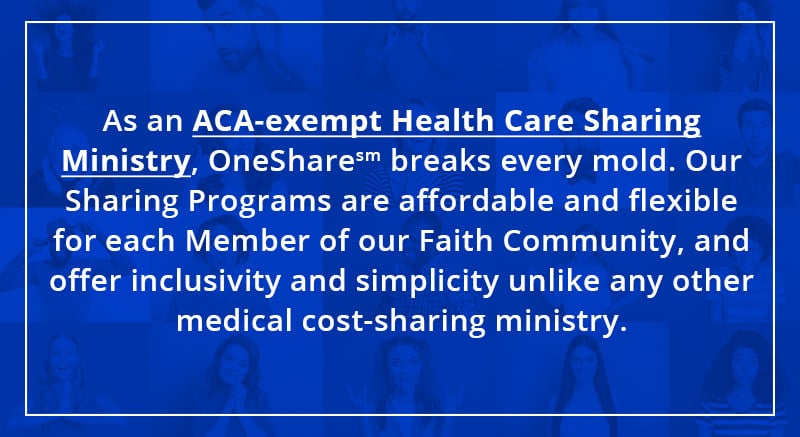

.png)


.png)



